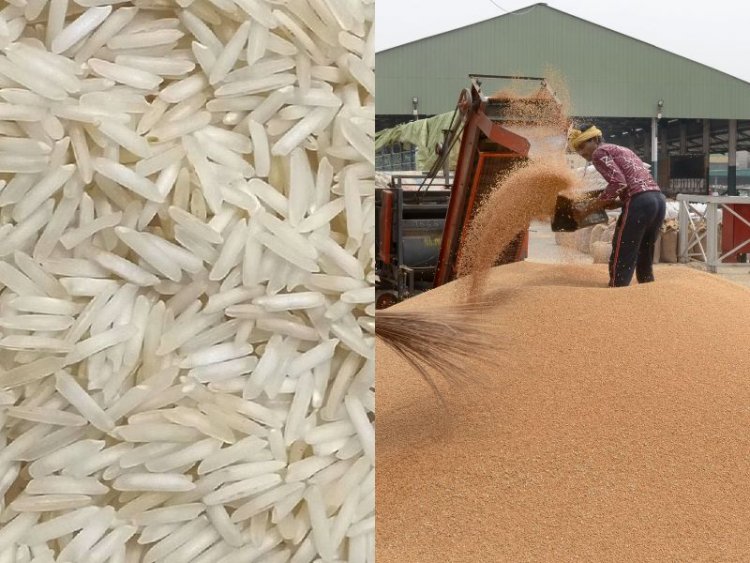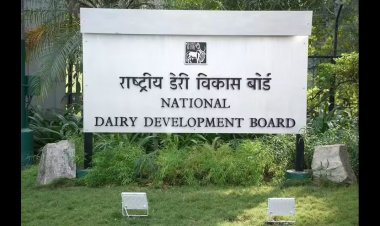Govt announces open sale of 50 LT wheat, 25 LT rice; drops reserve price of rice: But, will consumers benefit?
The government has announced the sale of 50 lakh tonnes of wheat and 25 lakh tonnes of rice in the open market from the central pool. Along with this, the reserve price of rice has been reduced by Rs 200 to Rs 2,900 per quintal.

The rising prices of wheat and rice are becoming a problem for the central government. The government has taken several steps to control prices, yet the inflation of both the major cereals is not under control completely. In the latest move, the government has announced the sale of 50 lakh tonnes of wheat and 25 lakh tonnes of rice in the open market from the central pool. Along with this, the reserve price of rice has been reduced by Rs 200 to Rs 2,900 per quintal.
But the big question still remains whether this time the consumers will get the benefit completely or like the last time (e-auction of January-March 2023), traders will take full advantage of the cheap government grain.
The Food Corporation of India (FCI) will sell 5 million tonnes of wheat and 2.5 million tonnes of rice through e-auction under the Open Market Sale Scheme (OMSS), the Union Ministry of Consumer Affairs, Food and Public Distribution said in a statement on Wednesday. The statement said that considering the experience of the last five auctions, the reserve price of rice has been reduced from Rs 3,100 to Rs 2,900 per quintal. The reduction in rice prices will be met from the Price Stabilization Fund of the Consumer Affairs Department.
It may be noted that for the second time this year, e-auction of wheat for private traders under OMSS is being conducted from June 28, which will continue till March 31, 2024. In the first round, till January-March 2023, 35 lakh tonnes of wheat was sold through e-auction. The e-auction of rice has been started for the first time this year for private traders from the first week of July but the quantity of FCI's that is being lifted is very less due to non-availability of buyers. At that time, its reserve price was fixed at Rs 3,100 per quintal. It has been decided to reduce the prices by Rs 200 per quintal in view of the low response from the buyers.
According to government data, retail prices of wheat have increased by 6.77 per cent and wholesale prices by 7.37 per cent in the last one year (till August 7, 2023). Similarly, the price of rice has increased by 10.63 per cent in the retail market and 11.12 per cent in the wholesale market.
Since these two major cereals are a significant contributor to food inflation, the government wants to keep their prices under control so that retail inflation does not flare up again, especially at a time when assembly elections are likely to be held in many states by the end of this year, while in April-May next year the Lok Sabha elections get due.
In order to control the inflation of wheat and rice this year, the government first sold 3.5 million tonnes of wheat from the central pool in the open market in January-March. After that the stock limit was imposed in June. Wheat export has been banned since last year itself. It was decided to start the e-auction again at the end of June. Despite these steps, the price of wheat has not softened in the market.
As far as rice is concerned, this year the government first banned the export of broken rice and imposed a 20 per cent duty on exports of non-basmati rice. This did not bring down prices, so in July it was decided to ban the export of non-basmati white rice. Despite all this the prices are not decreasing.
Even in January-March 2023, when wheat was sold through e-auction to private traders, large buyers like flour mills and wheat product manufacturers, consumers did not get much respite in prices. Retail prices of products like flour, bread and biscuits were only marginally relieved by companies, while the wholesale price of wheat was reduced by up to Rs 1,000 per quintal due to e-auction.
In comparison, the retail prices did not decrease much. While flour prices fell by only Rs 2-5 per kg, most of the bread and biscuit companies did not reduce the prices. While the government takes steps to provide relief to the consumers from inflation, private traders and companies take advantage of it.



 Join the RuralVoice whatsapp group
Join the RuralVoice whatsapp group








































